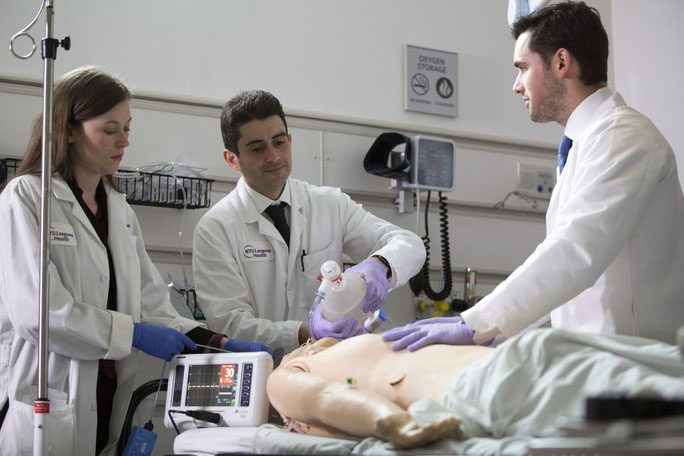A study led by the Grossman School of Medicine at New York University (NYU), in collaboration with 25 hospitals in the United States and the United Kingdom, reveals that experiences of death, such as “out-of-body experiences” or awareness of being dead, are not mere hallucinations or dreams.
The research, recently published in the medical journal Resuscitation, indicates that for up to an hour after cardiac arrest, some patients who successfully underwent cardiopulmonary resuscitation (CPR), which includes chest compressions and rescue breaths, reported clear memories of experiencing death.
While unconscious, the brain regions associated with their thoughts and memories were indeed active, recording a “lucid death”, which is genuine memory rather than a hallucination.

CPR training at a medical facility – (Photo: MEDICAL XPRESS).
Four out of ten of these patients recalled some level of awareness during the CPR process that standard measures did not capture.
A smaller group of these patients—40%—showed brain activity returning to normal or nearly normal levels when monitored with electrodes during resuscitation.
The researchers found mutations in gamma, delta, theta, alpha, and beta waves indicating high neurological function, accompanied by intense and insightful experiences.
These experiences included an awareness of out-of-body separation, observing events occurring in the resuscitation room without feeling pain or distress, and even evaluating the actions taken and their relationships—according to the study cited by Medical Xpress.
Scientists assert that this experience is entirely different from what occurs in the brain concerning hallucinations, illusions, dreams, or consciousness induced by CPR.
The authors also hypothesize that the brains of those who have “stepped one foot into the realm of death” may become “flat,” meaning the natural brake mechanisms that help store memories from childhood become clear, while the brain operates vigorously.
This is expected to open doors to a systematic exploration of what happens when a person dies.
Senior author Sam Parnia, an associate professor of medicine at NYU Langone Health and director of research in resuscitation and critical care at NYU Langone, stated that contrary to the long-held belief that the brain is permanently damaged after 10 minutes of cardiac arrest, the brains of patients may show signs of electrical recovery during prolonged CPR.
This is the first study to show these signs of brain activity recovery, including the recall of memories related to the experience of death.
“These findings could guide the design of new methods to restart the heart or prevent brain injury and are significant for organ transplantation surgeries,” emphasized Professor Sam Parnia.
A total of 85 special patients participated in this AWARE-II study, who were monitored for brain activity during CPR. The research team also collected additional testimonies from 126 individuals who had “crossed the threshold of death.”


















































